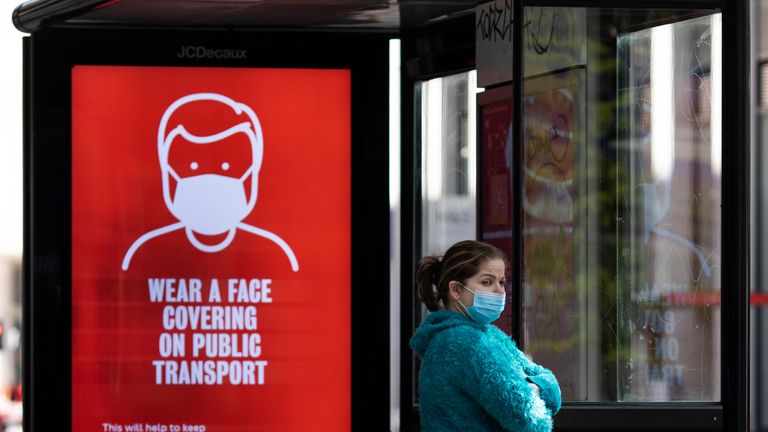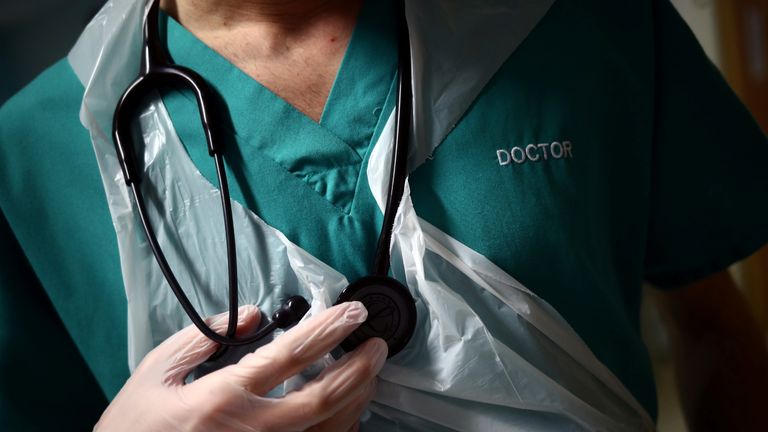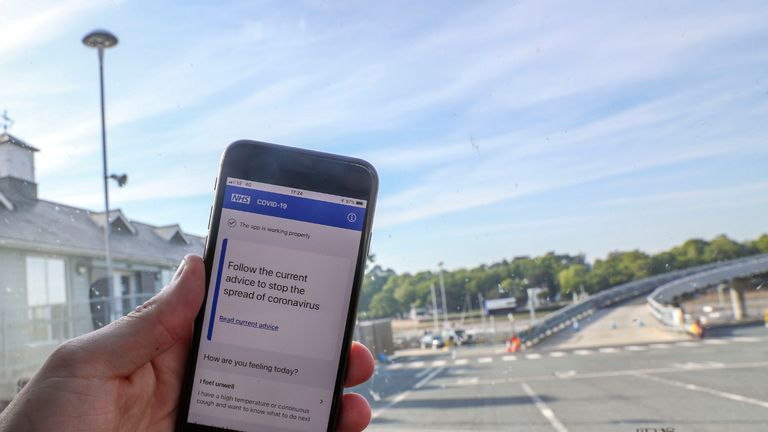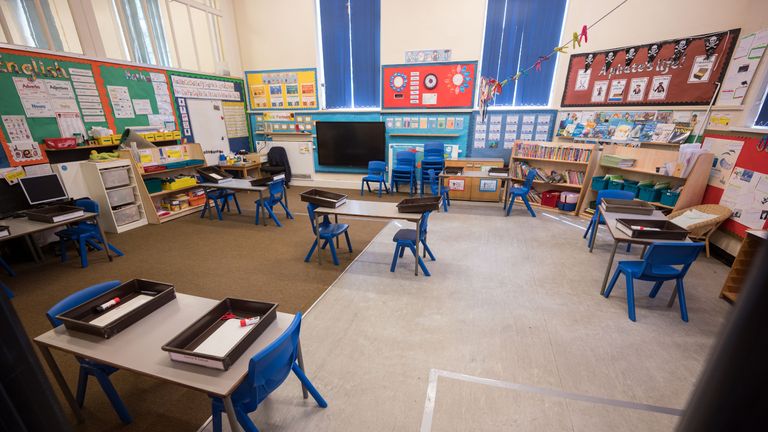Coronavirus: 21,000 'track and tracers' hired to help ease lockdown
The health secretary thanks them "in advance for the live-saving work that they're about to do".
Monday 18 May 2020 19:57, UK
More than 21,000 people have been recruited for the "track and trace" coronavirus programme to help ease England out of lockdown.
A third of them come from healthcare backgrounds and Health Secretary Matt Hancock said he is "perfectly prepared to hire more" if needed.
The workers will be used to track down people who have come into contact with infected individuals, as was done at the start of the pandemic before COVID-19 cases increased sharply and deaths reached more than 34,000.
But questions remain over when they will officially be put to work, with Foreign Secretary Dominic Raab refusing to say if the scheme will be up and running before some children are told to return to school on 1 June.
Mr Hancock announced the government had well-surpassed the original 18,000 target for the track and trace project in the Commons on Monday.
"They will help trace the contacts of anyone who has had a positive test and advise them on whether they need to isolate," he explained.
"They have rigorous training with detailed procedures designed by our experts at Public Health England.
"They have stepped up to serve their country in its hour of need and I want to thank them in advance for the live-saving work that they're about to do."
Mr Hancock also used his appearance before MPs to announce that anybody aged five and over who has coronavirus symptoms is now eligible for a test to see if they have the disease.
A total of 100,678 tests were carried out on Sunday and the aim is to hit 200,000 by the end of May.
The government's thinking is that a country-wide lockdown could be loosened if the process of testing someone with coronavirus symptoms, telling them to self-isolate if necessary and locating anyone else they may have infected can be sped up.
It is expecting to roll out an app where people self-report symptoms currently being trialled on the Isle of Wight within "weeks", Mr Raab confirmed later at the daily Downing Street briefing.
But some want the track and trace programme to begin as soon as possible, now that those who cannot do their job from home are being told to go back into work.
Schools have also been told to prepare to re-open from the start of next month.
Mr Raab refused to commit to a date, instead telling Sky News the government has been "pretty cautious" with its lockdown loosening plan and "making very sure we are taking the right steps at the right moment".
He also resisted to calls from Labour to publish the scientific advice behind Prime Minister Boris Johnson's decision to press ahead with strict social distancing measures being changed in the months ahead.
The devolved administrations have been more cautious in their approach to lifting restrictions than Downing Street, resulting in some differences in the guidance and rules for each nation since last week.
Scotland's First Minister Nicola Sturgeon has said that her advice remains "stay home", with the there not to be eased until 28 May at the earliest.











